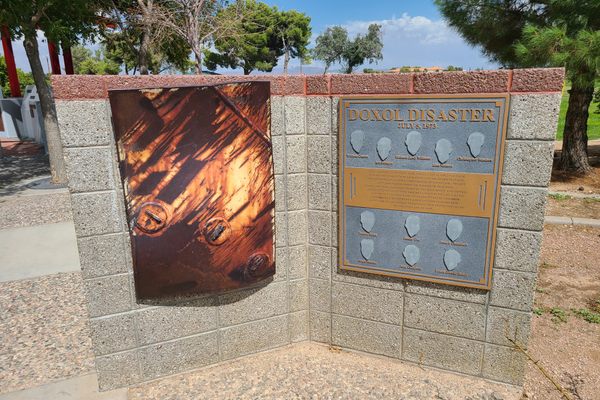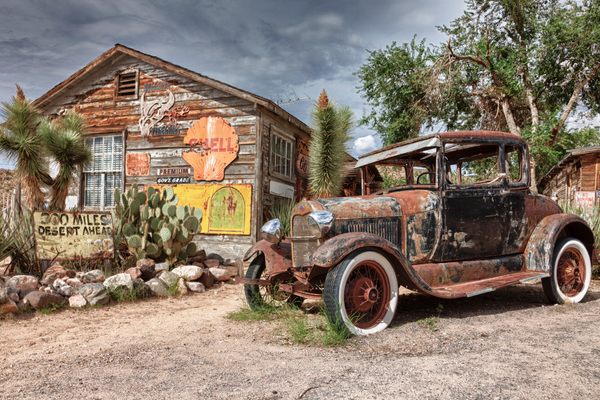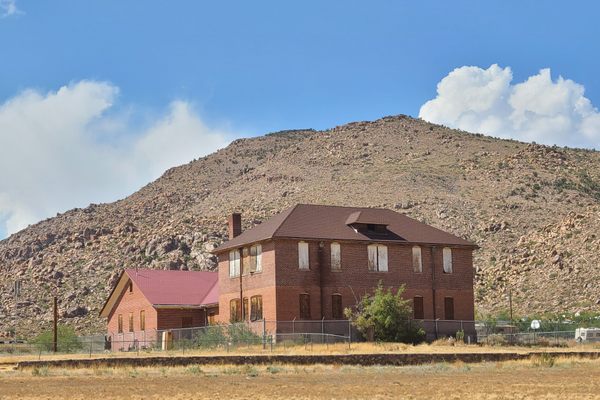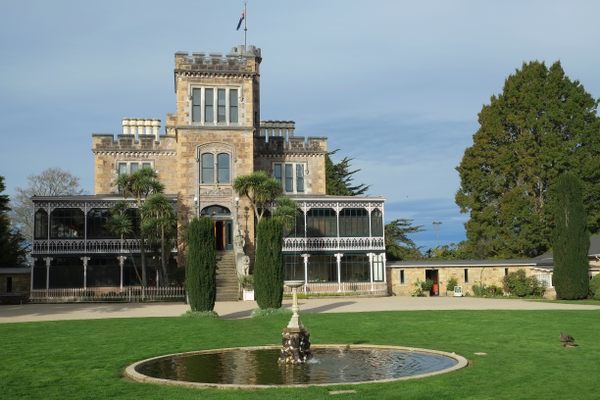AO Edited
Gold King Mansion
A century-old miner's quarters turned mansion.
The Gold King Mansion sits in the Hualapai Mountains in Mohave County, Arizona. Construction on the mansion began in 1930, shortly after a strike had been made on the land in April 1929 and a claim was made to it in July of the same year.
Progress was swift; a camp and road connected to the county highway were built to support the growing operation. As the mine grew, so did expectations as the mine operator, P. M. Woods, reported the company was to install a “big hoist,” “a big gas engine and a compressor… sufficient to operate the drills and pumps,” and an onsite ore mill. The prospective growth of the mine was enticing to financiers who rushed to invest.
At the end of August 1930, the company announced the building “the first of a series of model bunk houses, using reinforced concrete construction.” The houses were, according to the mine superintendent, to “contain an adequate sleeping room to accommodate several miners, a modern bathroom, and be provided with electric light.” Multiple of these bunkhouses was intended to be constructed but come October 1930, the mine found a large workforce unnecessary as the mine resulted in only one of the buildings being constructed.
In 1933, a local rancher John Odie visited the mine and found that the mansion was not used to shelter miners as originally intended. Odie claimed the owners “would take prospective stock buyers up there and wine and dine them and put them up in the house.” The estate was also furnished less like a miner’s quarters and more akin to a resort with elaborate crown molding, copper screen windows, and a concrete fishing pond off the east side of the building.
The mine was not nearly as successful as it once was projected to be as their starting capital of $1 million in 1930 was whittled down to $700,000 in 1933 when the last of the mining took place for the decade.
Despite inactivity between 1934 and 1941, interest in the mine resurged with the beginning of WWII and P. M. Woods resumed operation with a small crew in October 1942. The mine continued to operate through the war and produced gold, silver, lead, and zinc in small quantities. The mine was in use until 1947 but due to economic changes post-war and the death of P. M. Woods in 1948, the property was in limbo.
In 1972, Mohave County historian Roman Malach described the condition of the property and that all doors, windows, and wooden trim had been pilfered but that the ornate fireplace still remained. In 1980 another historian, Joe Blackstock, returned to find the fireplace stolen. Vandalism has remained an issue for the property but Site Stewards and the BLM have taken steps to maintain and preserve it.


















Follow us on Twitter to get the latest on the world's hidden wonders.
Like us on Facebook to get the latest on the world's hidden wonders.
Follow us on Twitter Like us on Facebook